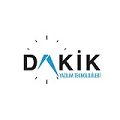We are in a digital transformation. For example, our invoices are now almost always electronically stored instead of having huge piles of paper in the office. With the Coronavirus outbreak, this transformation has been accelerated, for sure. But, what is a good way to store all the data in an immutable manner? You might guess, the blockchain or the distributed ledger. And to level up: Interoperable blockchain systems!
As you might know, blockchain is a particular kind of database that differs from a typical one in the way it stores information; blockchains store data in blocks that are chained together. That might seem complicated, but actually, the core concept is really simple.
The complicated part comes when we want two blockchains to work together. Because when a block is filled, it is set in stone and becomes a part of the chain. Each block in the chain is given an exact timestamp. This means that the data is stored chronologically and in an irreversible way. So, if a blockchain is merged with another, it is really difficult to sort out and prove which operation had been done before. This is why we need blockchains to be able to communicate with each other in a frictionless way, which we call interoperable blockchains, to carry our game to the next level.
Where Might We Need Interoperable Blockchain Systems?
Especially in some areas, interoperability might really step up the game! Here we list some of those:
-
Smart Electricity Networks
Let’s say you generate electricity and you want to sell it to a company, the one that is paying the fairest price… All these companies can have their own blockchains to store their records; to leverage all these information stores at the same time, you will need interoperability so that the company and client blockchains will be able to communicate with each other.
-
Smart Cities
Records of many things happening in the city are kept on blockchains. When these blockchains are to be brought together and optimized, the need for interoperability arises. One example can be a smart city ID management blockchain that can be leveraged by another blockchain on health or transportation management where the services might have been outsourced to private companies.
-
Charity Work
Municipalities or charities sometimes lance programs where people pay other people’s debts, anonymously. For example, in Turkey, there is a program called ‘Askıda Fatura’ lanced by several municipalities. Here, volunteers randomly pay the bills of people who are in need. The process, of course, occurs electronically. Here, there are two blockchains, one of them is where the records of citizen’s bills are stored, and the other is where the payments are recorded. These two need to communicate with each other perfectly so that the process goes smoothly.
-
Loyalty Programs
We love to gain while we spend, right? This is the main reason why loyalty programs, as known as reward programs, are one of the most popular marketing strategies. Blockchain technology creates frictionless systems for loyalty programs by reducing costs and making the process nearly real-time.
When it comes to interoperable blockchain systems, it becomes even more amazing. With that technology, if you have different companies working on different blockchains, you can make them operate together. As well, if you have a business that makes customers earn points with the purchases they make from several different companies you have an agreement with, interoperable blockchain systems will be your best friend.
Problem & Solution
We have mentioned that the core concept of blockchain technology is simple, however, the complicated part comes when we want interoperable blockchain systems. Well, not anymore.
Thankfully, we have a scalable solution that seamlessly takes care of all this complexity: meet iDelta, an international project which is led by us.
In situations where data provided by one and data provided by another are combined, a control mechanism where everything is provable is needed. This is where iDelta comes to the scene. As a solution that aims for creating scalable interoperable Distributed Ledger Technologies, enhanced with artificial intelligence to automate and optimize digitized processes, iDelta is designed especially for ensuring security in channels where the parties do not know each other; for creating trust when there are more than one blockchains that are created by different institutions or different people.
You can register your blockchains or applications that work with blockchain on iDelta. Even if applications running on different blockchains are registered, they can work together seamlessly and can see and use data from each other without any security issues.
Basically, iDelta creates computational trust, you can be ensured that you have a robust workflow. In this way, many use cases can be created on top of your corporate blockchain.
If you would like to be a part of our family and create an environment of trust for your business, get in touch with us to learn more about iDelta, how, and where you can get an advantage from it. Looking forward to meeting you!
Take care…
